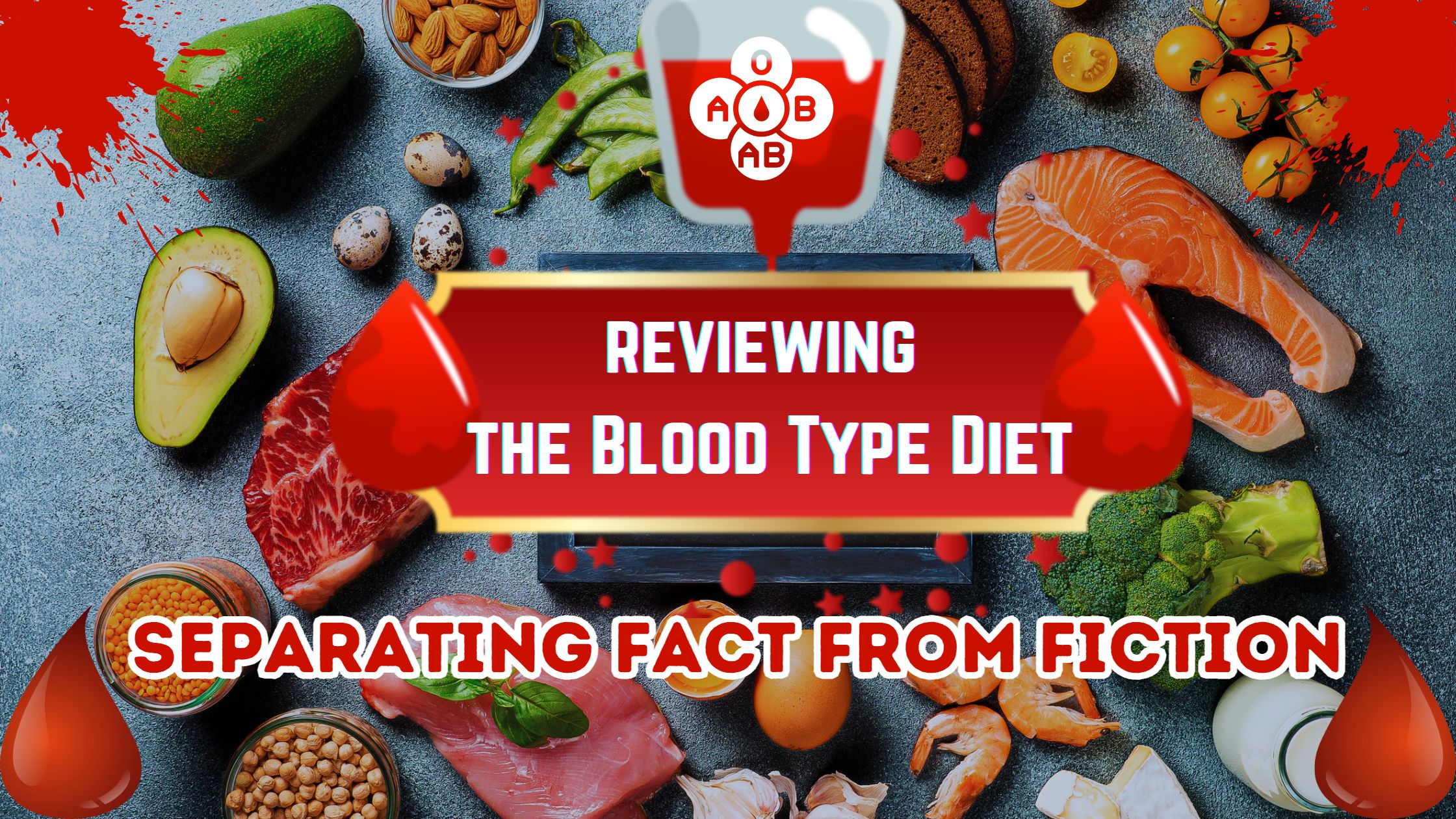The blood type diet, which claims to provide dietary advice based on an individual’s blood type, has gained popularity since its introduction by Peter D’Adamo in 1996 through his bestselling book, “Eat Right for Your Type.” However, registered dietitian Devon Peart highlights several problems with this diet and offers recommendations for a more evidence-based approach to healthy eating. In this blog post, we will review the Blood Type Diet and decipher whether it is a mere myth or a proven reality.
Dr. D’Adamo’s Blood Type Diet and its Recommendations:
Dr. D’Adamo’s blood type diet suggests that your physiological response to food is linked to your blood type. He believed that eating foods that were prevalent during the time your blood type evolved would improve your overall health and reduce the risk of chronic diseases. Each blood type is assigned a specific way of eating based on when D’Adamo thought that blood type emerged.
- For blood type O, which is considered the oldest blood type from the hunter-gatherer period, a low-carb, high-protein diet is recommended.
- Blood type A, which developed during the farming period, is advised to follow a plant-based diet.
- Blood type B, originating from nomadic populations who focused on herding animals, is said to benefit from a diet rich in meat and dairy products.
- Blood type AB, a rare blood type resulting from the intermingling of farmers and nomads, is suggested to consume turkey, tofu, seafood, and vegetables.
Practical Challenges of Blood Type Diet:
One of the primary challenges of the blood type diet lies in its extensive lists of do’s and don’ts for each blood type. This can create practical difficulties, particularly in households where family members have different blood types and the daily meal plan can become a long list that must be cumbersome.
Lack of Scientific Evidence and Expert Criticisms:
However, the more significant concern is the lack of scientific evidence supporting the blood type diet. Devon Peart explains that the diet’s foundation rests on the assumption that our bodies are better adapted to the foods that were prevalent during the time our blood type potentially developed. Yet, there is no scientific support for this claim. Moreover, researchers continue to debate the actual order in which different blood types emerged, casting doubt on the diet’s underlying premise.
Blood Type Insignificance and Research Findings:
Numerous studies have demonstrated that the recommended diets for blood types A, AB, and O can produce positive health outcomes, irrespective of an individual’s blood type. For instance, individuals with type B blood who follow the type A diet (a vegetarian approach) can still reduce their risk of heart disease. These findings indicate that blood type does not significantly influence how our bodies respond to food.
Peart emphasizes that the positive results often associated with the blood type diet likely stem from factors such as increased consumption of fruits, vegetables, and quality grains, along with reduced meat intake. This suggests that focusing on overall dietary quality rather than blood type specificity is vital to achieving optimal health outcomes.
Recommendations and Alternatives for a Healthy Eating Approach:
Considering the limitations of the blood type diet, Peart advises individuals with blood types A, AB, or O to feel free to explore these eating plans as they generally promote healthy choices. However, she cautions against following the blood type B diet, which tends to be higher in saturated fat and associated with an increased risk of heart disease.
Instead, Peart suggests embracing a proven anti-inflammatory diet, such as the Mediterranean diet. This approach offers similar health benefits without the complexities associated with the blood type diet. Ultimately, the most important factor in choosing a dietary path is finding one that aligns with an individual’s lifestyle and can be sustained in the long term.
By adopting evidence-based and personalized dietary strategies, individuals can prioritize overall health and well-being while debunking the unsupported claims of the blood type diet.


